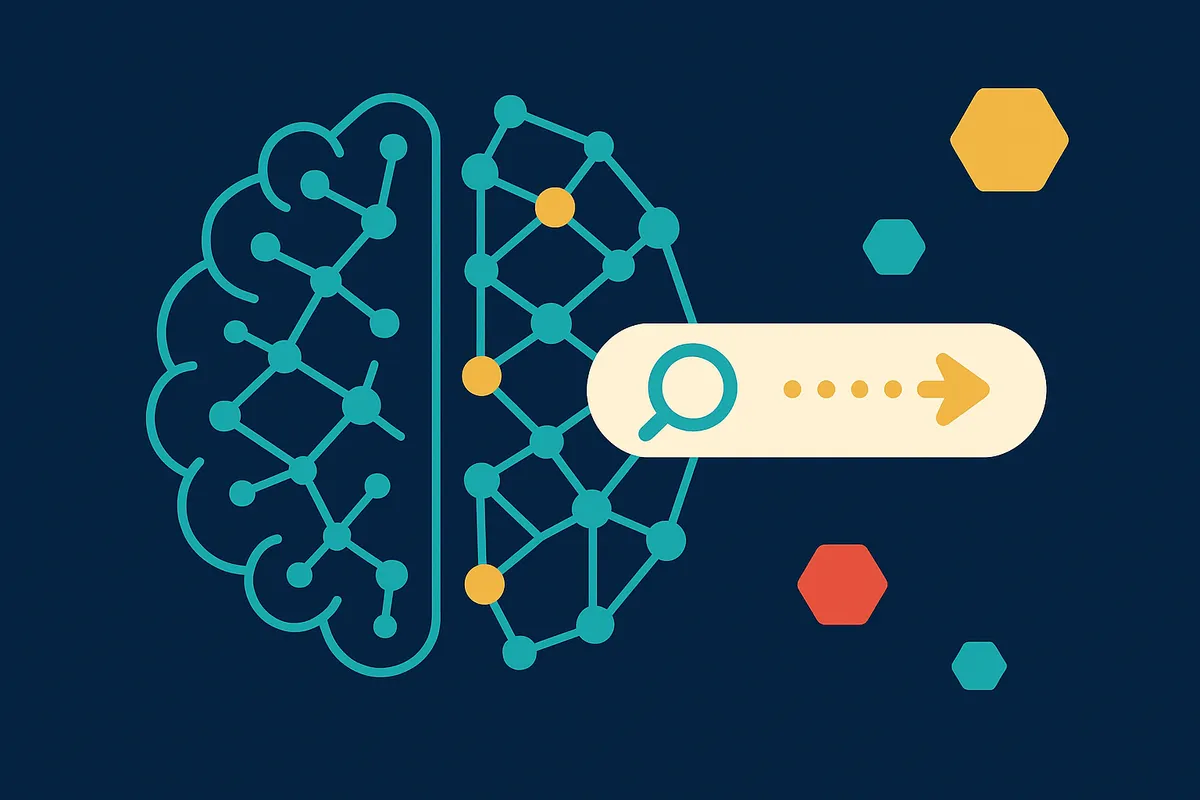(Healthcare brands that don’t adapt will disappear.)
Similarweb claims health search traffic is down 31%. That sounds alarming, but it doesn’t match what we’re seeing across the hundreds of healthcare websites we manage. Search traffic in healthcare is holding up - for now.
So, is the data wrong? Probably not.* AI is shifting patient behaviour. People are skipping the click and going straight to an answer. ChatGPT, Perplexity, and Google’s own AI overviews (and upcoming AI mode) are eating into the old way the web worked:
Ask a question → click a link → land on a page.
That loop is breaking. Patients are asking ChatGPT instead of Google. And in many cases, they’re getting the answer they need without ever visiting a healthcare brand’s site.
Search isn’t dead, but the click is
This isn’t the first “death of search” headline. Social media was going to kill it. Apps were going to kill websites. None of that happened.
But let’s be real: patients don’t want your 1,200-word blog post answering “What is diabetes?” They want quick, trusted answers.
Google’s AI mode might look half-baked right now. But don’t underestimate them. Google still owns 90% of the traditional search market and has more data than anyone. They’ll figure it out.
Search isn’t dead. But here’s the difference now:
AI doesn’t just change the channel - it changes the entire economic model of the web.
What’s dead (or at least dying) is the old definition of SEO.
SEO is dead. Long live Search Optimisation (SO)
The brands still playing by the 2015 SEO playbook - keyword stuffing, chasing backlinks, writing thin blog posts titled “What is X?” - are done.
The game has changed.
AI doesn’t care about your title tags. It cares about context, structure, and authority. It’s pulling answers, not pages.
That means the winners will be brands that:
-
Create authoritative, structured content that AI can trust and extract from
-
Optimise for the search ecosystem, not just Google- AI engines, voice search, social discovery, and platforms we can’t predict yet
-
Shift investment from pure traffic acquisition to data ownership
Let me say that last one again because it’s critical:
If you’re relying on Google for all your traffic, your business is fragile.
Healthcare’s time to shine (or sink)
Healthcare isn’t like retail. Patients aren’t one-time shoppers. They’re on a lifelong journey. Today it’s fertility. Tomorrow it’s paediatrics. Later it’s cardiology or orthopaedics.
The brands that start building first-party data now - emails, preferences, and behavioural insights - will be the ones that can personalise, retarget, and remain relevant as patients move through life stages.
Without that? You’re invisible the moment Google or ChatGPT decides not to show your link.
Five things you should have done yesterday
1. Stop thinking SEO. Start thinking search ecosystem.
Google is just one node now. Patients are discovering information via:
-
AI engines (ChatGPT, Perplexity)
-
Voice assistants
-
Social discovery
-
Specialist forums
If you’re not building for multi-channel visibility, you’re stuck in 1999.
2. Feed the answer economy
AI answers are the new featured snippet. Brands that structure content to provide clear, concise, medically accurate answers - and back it up with authoritative signals - will become the default sources for AI responses.
Think “What’s the single sentence that solves this?” as much as “What’s the 1,000-word blog post?”
3. Build first-party data like your life depends on it (because it does)
Healthcare journeys are long and complex. If you don’t capture and nurture patient data early, you’ll lose them to whoever does.
Every touchpoint should drive towards:
-
Email capture
-
Preference capture
-
Consent for personalised content
Do this ethically, transparently, and in compliance with healthcare regulations, but do it now.
4. Personalise or perish
Patients expect relevance. If someone engages with your fertility content, anticipate their next step: egg freezing, pregnancy care, menopause support.
The future of healthcare marketing isn’t campaigns. It’s personalised digital care pathways.
5. Prepare for paid AI search
AI engines will monetise. Expect sponsored answers, premium placement, and AI-driven advertising.
Brands that start experimenting early will win. Those who wait will pay a premium or get locked out entirely.
What this means for healthcare brands
Search isn’t dying. Patients will always look for answers. But the way they search, and who gives those answers, has changed forever.
If your digital strategy still revolves around ranking for keywords, you’re already behind.
If you’re not investing in structured content, AI readiness, and first-party data, you’re gambling with your brand’s future.
AI isn’t killing search. It’s killing lazy SEO.
Adapt now, or vanish from the patient journey.
🔥 Your move:
Is your brand ready for the AI search era - or still clinging to Google rankings like it’s 2015?
* It’s likely that the bulk of the change is from high-volume generic search, whereas the majority of value comes from the lower volume, more specialist search terms that our clients covet. Those will be next to go.
